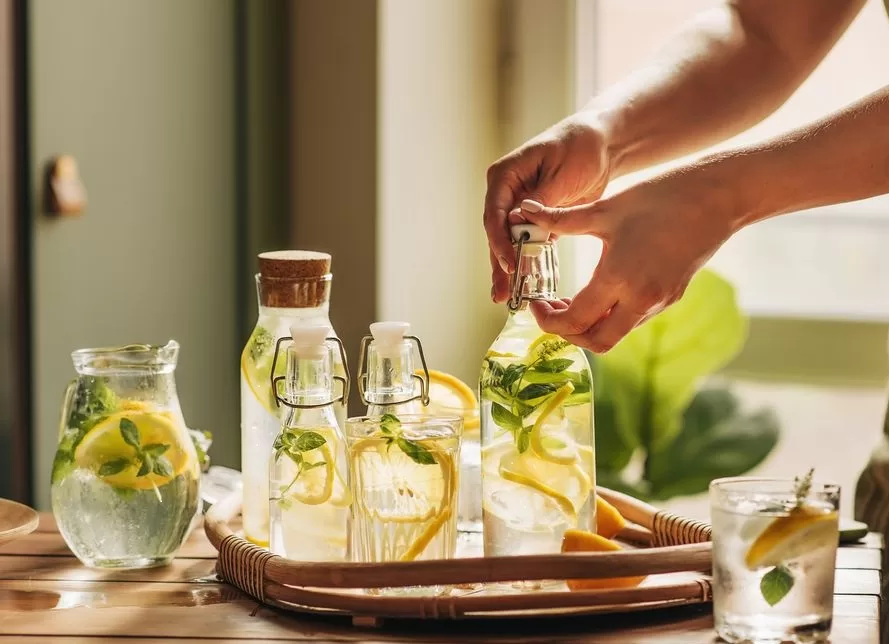Anyone who has ever experienced a hangover knows how unpleasant it can be. The throbbing headache, nausea, and general malaise can ruin an entire day. However, there are ways to mitigate these symptoms, and one of the most effective methods is to eat the right foods before drinking. In this comprehensive guide, we will delve into what to eat before drinking to avoid hangovers. We’ll explore various types of foods, explain why they help, and offer practical tips to ensure you can enjoy your night out without paying the price the next day.
Why Eating Before Drinking Matters
Before we dive into specific foods, it’s essential to understand why eating before drinking alcohol can help prevent hangovers. Here are some key reasons:
- Slows Absorption of Alcohol: Food in the stomach slows the absorption of alcohol into the bloodstream, reducing its immediate effects and giving your body more time to metabolize it.
- Maintains Blood Sugar Levels: Drinking on an empty stomach can lead to low blood sugar levels, contributing to hangover symptoms like fatigue and irritability.
- Provides Essential Nutrients: Consuming nutrient-dense foods before drinking ensures that your body has the necessary vitamins and minerals to combat the dehydrating and inflammatory effects of alcohol.
- Prevents Dehydration: Certain foods can help maintain hydration levels, reducing the likelihood of severe hangover symptoms.
Best Foods to Eat Before Drinking
1. Healthy Fats
Healthy fats are excellent for slowing the absorption of alcohol. They coat the stomach lining, which helps reduce the rate at which alcohol enters the bloodstream. Here are some healthy fat options:
- Avocados: Rich in monounsaturated fats and potassium, avocados can help maintain electrolyte balance.
- Nuts and Seeds: Almonds, walnuts, and chia seeds provide a good mix of healthy fats, fiber, and protein.
- Olive Oil: Use it as a salad dressing or in cooking to add healthy fats to your meal.
2. Lean Proteins
- Chicken Breast: A lean source of protein that can be easily added to salads or sandwiches.
- Turkey: Another lean protein option that’s rich in tryptophan, which can help stabilize mood.
- Greek Yogurt: High in protein and probiotics, Greek yogurt can be a good base for smoothies or snacks.
Proteins take longer to digest, which helps slow down the absorption of alcohol. They also help maintain muscle mass and energy levels.
3. Complex Carbohydrates
Complex carbohydrates provide a steady release of energy and help keep blood sugar levels stable, reducing the risk of alcohol-induced hypoglycemia.
- Whole Grains: Brown rice, quinoa, and whole grain bread are excellent sources of complex carbs.
- Oats: Oatmeal or overnight oats are convenient options that can be customized with various toppings.
- Sweet Potatoes: Rich in vitamins and fiber, sweet potatoes are nutritious and filling.
4. Hydrating Fruits and Vegetables
Staying hydrated is crucial when drinking alcohol, as it is a diuretic and can lead to dehydration. Consuming water-rich fruits and vegetables can help maintain hydration levels.
- Watermelon: Composed of over 90% water, watermelon is an excellent hydrating snack.
- Cucumbers: are another hydrating vegetable that can be added to salads or eaten as a snack.
- Oranges: High in vitamin C and water content, oranges can boost your immune system and keep you hydrated.
5. Electrolyte-Rich Foods
Alcohol consumption can lead to an imbalance of electrolytes, causing symptoms like muscle cramps and fatigue. Foods rich in electrolytes can help counteract this effect.
- Bananas: High in potassium, bananas are a quick and easy snack to maintain electrolyte balance.
- Spinach: Rich in magnesium and potassium, spinach can be added to salads, smoothies, or sautéed as a side dish.
- Coconut Water: Naturally high in electrolytes, coconut water can be consumed on its own or added to smoothies.
Specific Meal Ideas
To help you incorporate these foods into your pre-drinking routine, here are some specific meal ideas:
Breakfast
- Avocado Toast with Whole Grain Bread: Top whole grain bread with mashed avocado, a sprinkle of salt, and a squeeze of lemon juice.
- Greek Yogurt Parfait: ‘Layer Greek yogurt with fresh berries, nuts, and a drizzle of honey;’
- Overnight Oats: Combine oats with milk or a milk alternative, chia seeds, and your favorite fruits. ‘Let it sit overnight in the fridge;’
Lunch
- Grilled Chicken Salad: Mix grilled chicken breast with a variety of vegetables like spinach, cucumbers, and bell peppers. Dress with olive oil and lemon juice.
- Quinoa Bowl: Combine cooked quinoa with black beans, sweet potatoes, avocado, and a lime vinaigrette.
- Turkey and Avocado Wrap: Use a whole grain wrap, and fill with sliced turkey, avocado, spinach, and a light spread of hummus.
Dinner
- Salmon with Sweet Potato and Spinach: Bake or grill salmon and serve with roasted sweet potatoes and sautéed spinach.
- Chicken Stir-Fry: Sauté chicken breast with a mix of colorful vegetables and serve over brown rice.
- Vegetable Pasta: Use whole grain or legume-based pasta, and mix with a variety of vegetables and a light olive oil sauce.
Additional Tips to Avoid Hangovers

1. Stay Hydrated
One of the most important things to do before, during, and after drinking is to stay hydrated. Drink a glass of water before you start drinking alcohol and continue to alternate between alcoholic beverages and water throughout the night.
2. Choose Your Drinks Wisely
Certain alcoholic drinks are more prone to causing hangovers than others. Clear spirits like vodka and gin typically have fewer congeners (byproducts of fermentation) compared to darker spirits like whiskey and rum. Choosing drinks with lower congener levels can help reduce the severity of hangovers.
3. Pace Yourself
Drinking alcohol slowly gives your body more time to metabolize it and can reduce the risk of a hangover. Try to sip your drinks rather than gulping them down and take breaks between drinks.
4. Avoid Mixing Different Types of Alcohol
Combining various kinds of alcohol can heighten the chances of experiencing a hangover. Stick to one type of drink throughout the night to minimize this risk.
5. Take Supplements
Certain supplements can help reduce the severity of hangovers. Consider taking vitamin B complex, vitamin C, and magnesium supplements before and after drinking to support your body’s recovery.
Recap and Key Points
To summarize, eating the right foods before drinking can significantly reduce the risk of hangovers. Here are the key points to remember:
- Healthy Fats: Avocados, nuts, seeds, and olive oil can slow the absorption of alcohol.
- Lean Proteins: Chicken breast, turkey, and Greek yogurt help maintain energy levels and slow alcohol absorption.
- Complex Carbohydrates: Whole grains, oats, and sweet potatoes provide steady energy and stabilize blood sugar levels.
- Hydrating Fruits and Vegetables: Watermelon, cucumbers, and oranges help maintain hydration.
- Electrolyte-Rich Foods: bananas, spinach, and coconut water balance electrolytes.
There are several ways available to relieve these symptoms. Discover what foods you are to eat before drinking to avoid experiencing hangovers the next day.
In addition to these foods, remember to stay hydrated, choose your drinks wisely, pace yourself, avoid mixing different types of alcohol, and consider taking supplements to further reduce hangover symptoms.
By incorporating these strategies into your pre-drinking routine, you can enjoy your night out without the dreaded hangover the next day.
- What to eat before drinking to avoid hangovers: As you enjoy your meal, be sure to hydrate well and pace yourself while drinking. Drinking plenty of water throughout the evening can help reduce the effects of alcohol.
- Best foods to prevent hangovers: Some foods to prevent hangovers include bananas, ginger, eggs, and asparagus. These foods can help replenish essential nutrients, and aid in digestion.
- Hangover prevention tips: it’s important to drink alcohol in moderation, stay hydrated by drinking water between alcoholic beverages, and eat a meal before drinking to slow down alcohol absorption.
- Foods to eat before drinking alcohol: Eating foods high in protein and healthy fats, such as nuts, cheese, and lean meats, can help slow down the absorption of alcohol into your bloodstream.
- How to avoid hangovers: Drink plenty of water throughout the night to stay hydrated. Alcohol dehydrates the body, contributing to hangover symptoms.
Conclusion
Avoiding a hangover is about what you do after drinking and how you prepare beforehand. By eating the right foods, staying hydrated, and making smart choices about your drinking habits, you can significantly reduce the risk of a hangover.
Remember, moderation is key, and taking care of your body before, during, and after drinking is the best way to ensure you can enjoy your time without the unpleasant aftermath.



